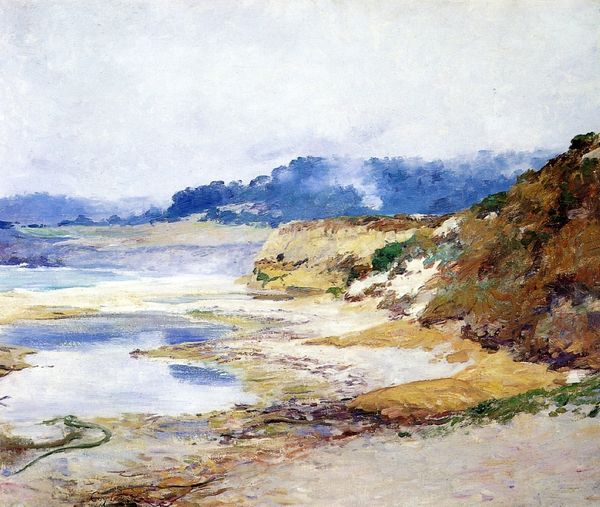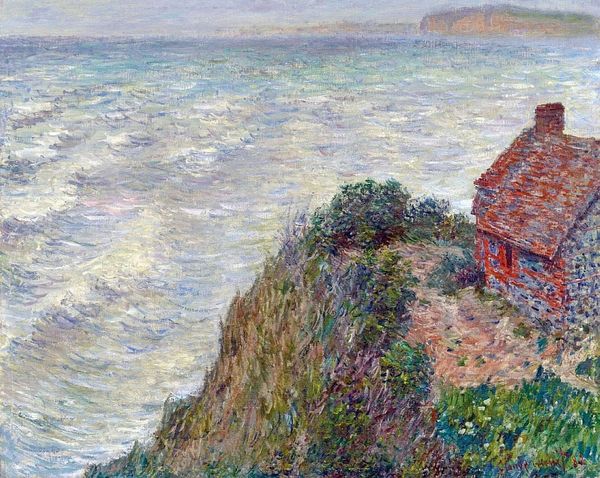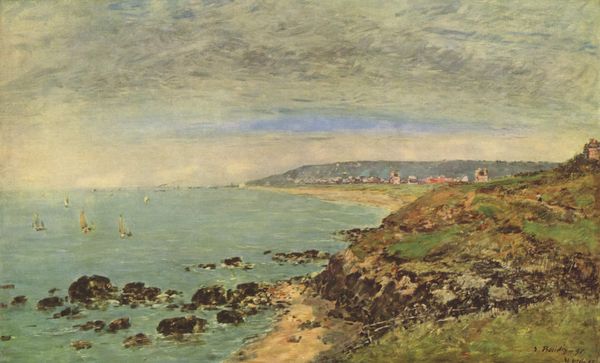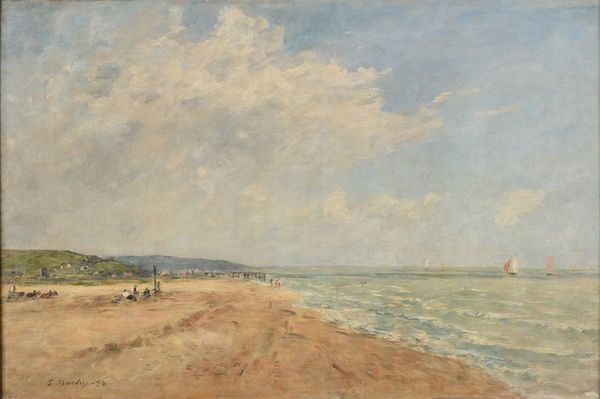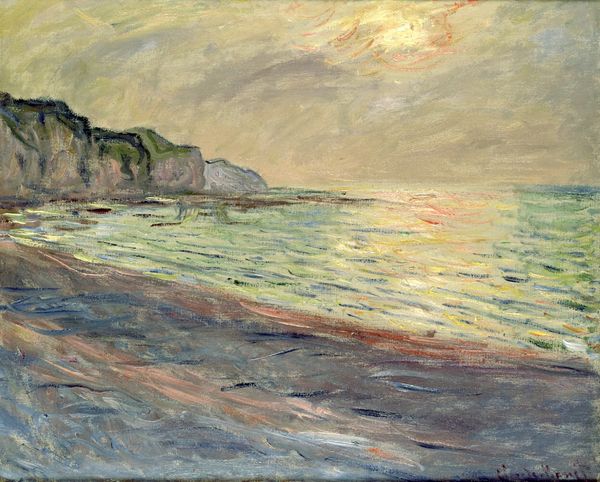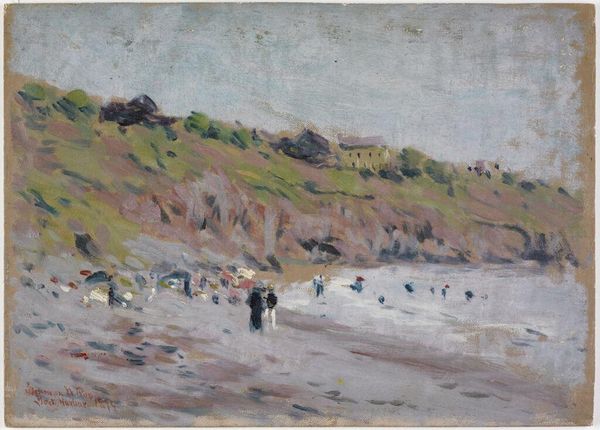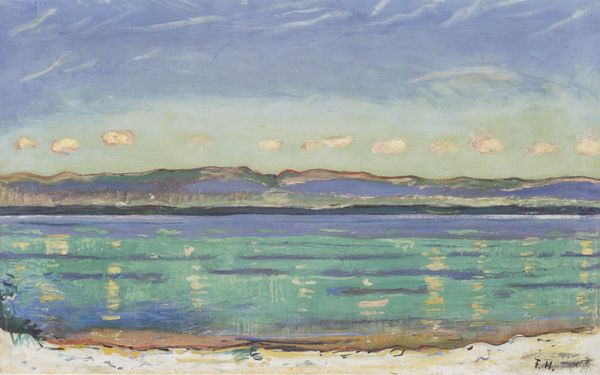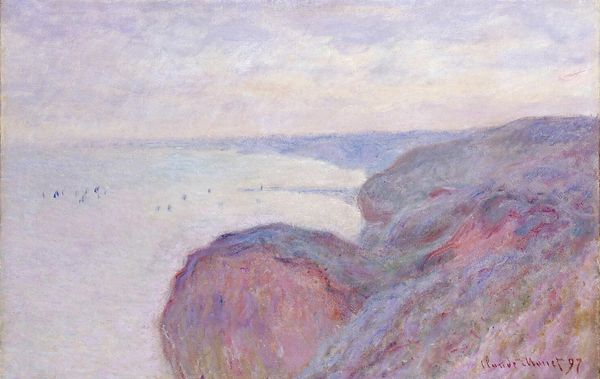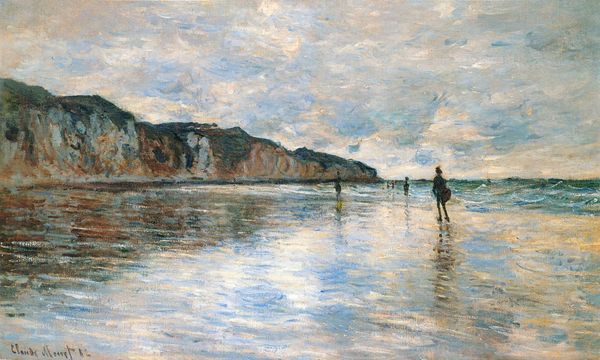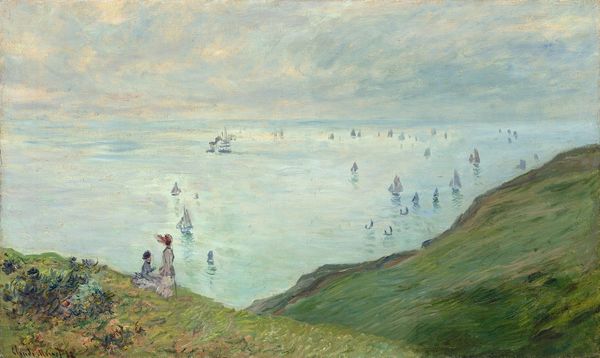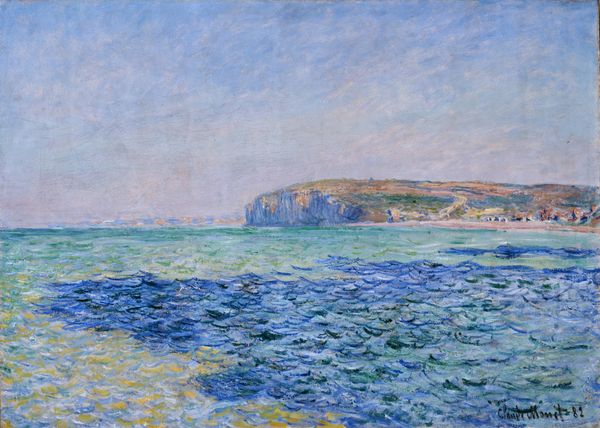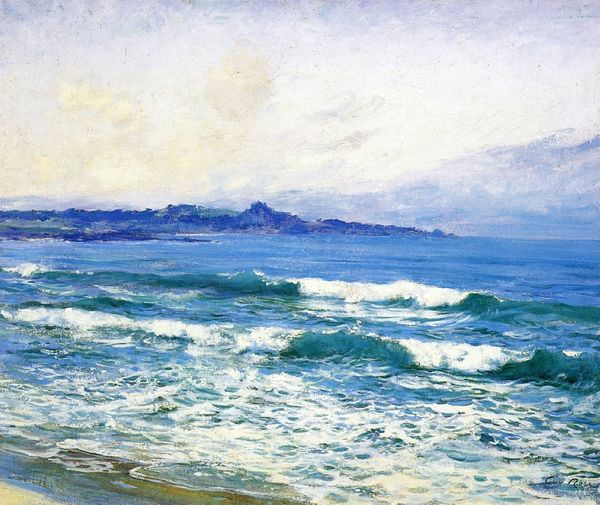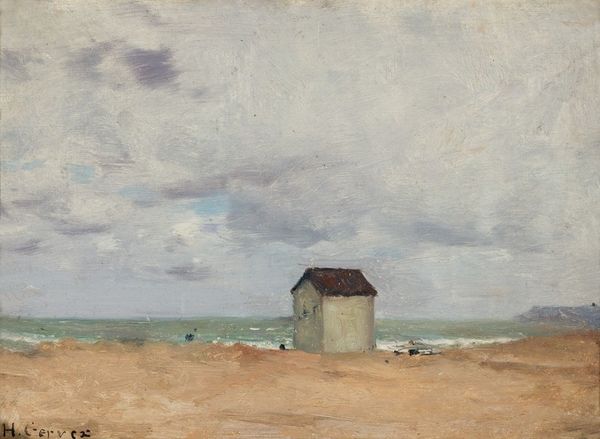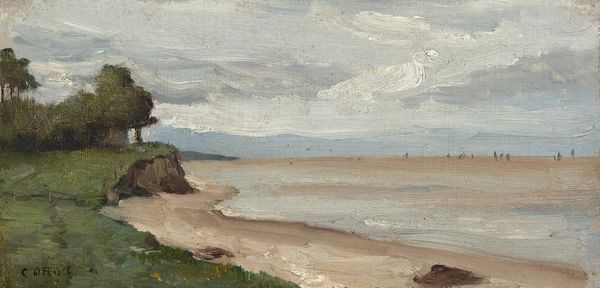
painting, plein-air, oil-paint
#
painting
#
impressionism
#
plein-air
#
oil-paint
#
landscape
#
impressionist landscape
#
oil painting
#
seascape
#
cityscape
#
modernism
Copyright: Public domain
Curator: Painted in 1881, this work by Claude Monet is entitled "The Hut at Trouville, Low Tide." Monet, a leading figure of Impressionism, captured this scene en plein air, using oil on canvas. Editor: My first impression is one of serene vastness. The muted colours create a hazy atmosphere. It’s quiet and contemplative, with that little cottage nestled in the foreground offering a point of domesticity amidst the immensity of the beach. Curator: The 'en plein air' technique was revolutionary for its time. Monet and his contemporaries sought to capture the fleeting effects of light and atmosphere directly from nature. This marked a significant shift from studio-based painting and challenged the academic art establishment of the day. How do you read that choice today? Editor: I see a connection to larger societal shifts – the rise of leisure, changing perceptions of landscape, the growing middle class with disposable income and the desire for escapism. Places like Trouville became havens for those seeking respite from the industrialized world. So this painting speaks volumes about those shifts. Curator: The placement of the hut, almost swallowed by the landscape, reflects a particular sensibility towards modernity too. Monet wasn’t just painting a pretty picture; he was engaging with broader questions of humanity’s place in a changing world, the growth of tourism, and the evolving relationship between urban and rural life. Editor: Precisely. I read the brushstrokes themselves as a reflection of this transience, an acknowledgement of a moment in time that’s always evolving. Those quick, broken strokes mirror the very instability that modern life represented. The lack of precise detail invites the viewer to engage and contemplate what they observe and maybe what is not overtly apparent, that social dynamic as it shifted then and how this continues today. Curator: Absolutely. It’s a painting that continues to resonate because it doesn't offer simple answers but poses important questions. It challenges us to reconsider our relationship to nature, society, and the relentless march of progress. Editor: Indeed. "The Hut at Trouville, Low Tide" leaves me reflecting on how our yearning for solace and simplicity intersects with the ever-evolving dynamics of society and landscape.
Comments
No comments
Be the first to comment and join the conversation on the ultimate creative platform.
